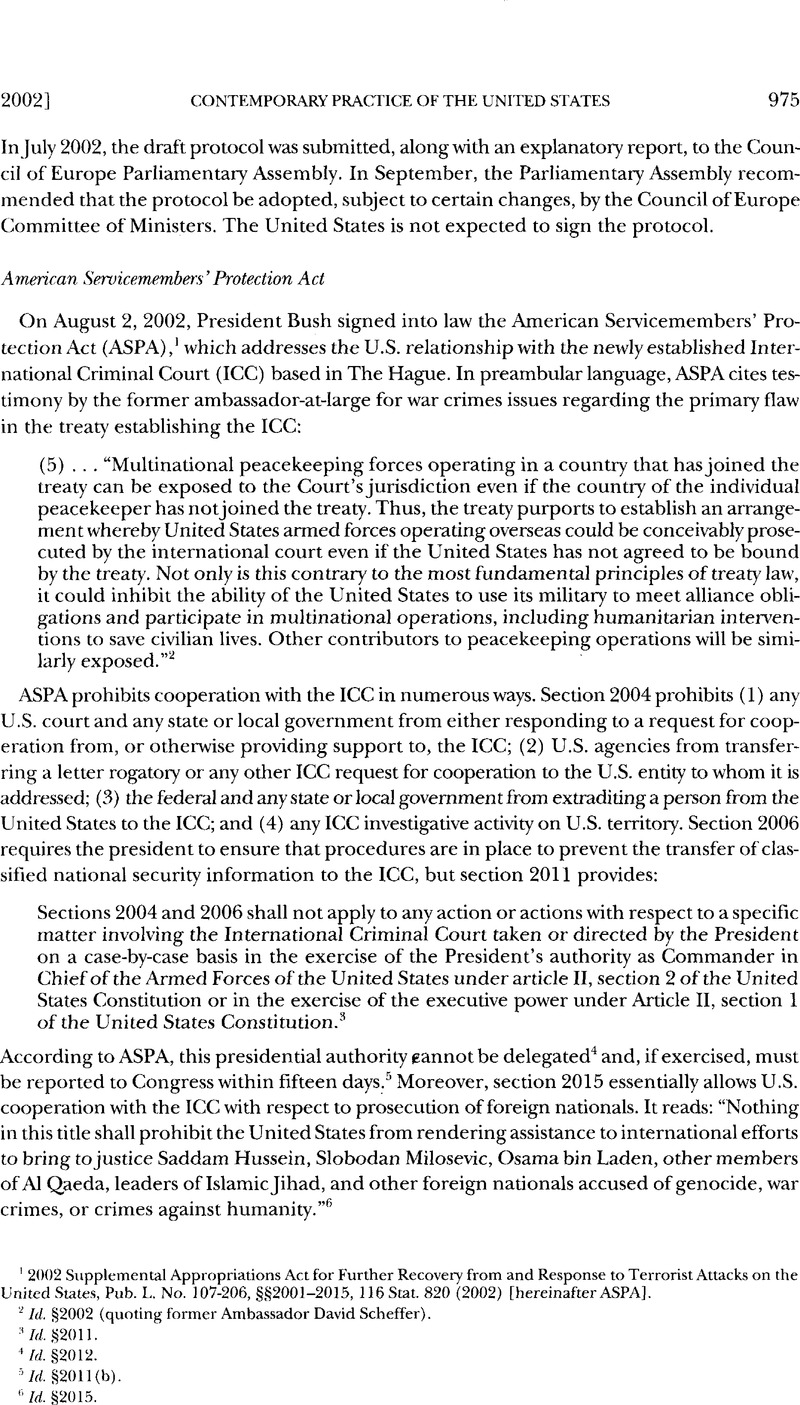Published online by Cambridge University Press: 10 March 2017

1 2002 Supplemental Appropriations Act for Further Recovery from and Response to Terrorist Attacks on the United States, Pub. L. No. 107-206, §§2001-2015, 116 Stat. 820 (2002) [hereinafter ASPA],
2 Id. §2002 (quoting former Ambassador David Scheffer).
3 Id. §2011.
4 Id. §2012.
5 Id. §2011 (b).
6 Id. §2015.
7 For efforts to obtain a blanket Security Council exemption, see Sean D. Murphy, Contemporary Practice of the United States, 96 AJIL 725 (2002).
8 Major non-NATO allies are so designated in accordance with section 517 of the Foreign Assistance Act of 1961, 22 U.S.C. §2321 (2000). Such allies include Australia, Bahrain, Egypt, Israel, Japan, Jordan, New Zealand, and South Korea.
9 See Becker, Elizabeth, U.S. Ties Military Aid to Peacekeepers’ Immunity, N.Y. Times, Aug. 10, 2002, at A1 Google Scholar.
10 [Editor’s Note: “Covered United States persons” are defined as members of the U.S. armed forces, U.S. government elected or appointed officials, and other persons employed by, or working on behalf of, the U.S. government. ASPA, supra note 1, §2013(4).]
11 Id. §2008 (a), (b).
12 Statement of the U.S. Embassy, The International Criminal Court & Reaction to the American Servicemembers’ Protection Act (June 12, 2002), at <http://www.usemb.nl/061202.htm>.
13 Ambassador Boudewijn Johannes van Eenennaam, Speech at the International Criminal Court Celebration at the World Federalist Association (June 26, 2002), at <http://www.netherlands-embassy.org/c_iccspeech.html>.